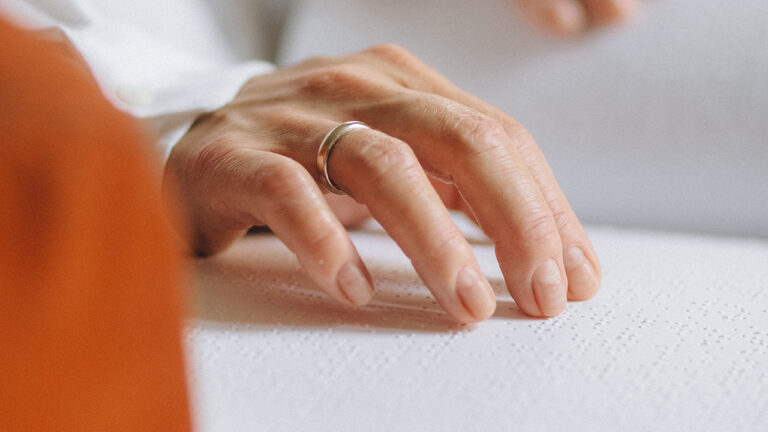Many people might think that once you have been diagnosed with a visual impairment or have gone blind, a regular eye exam is not necessary. But depending on your eye condition and doctor’s advice, getting routine eye exams is an important part of overall eye health.
An exam can show medical conditions such as diabetes, glaucoma, high cholesterol, and high blood pressure. Additionally, numerous diseases that affect the eye often do not have warning signs but can have severe effects on vision and eye health later. These conditions can be easily managed when caught early.
August is National Eye Exam Month, making it the perfect time to schedule a checkup appointment. But before you see a doctor, prepare and review the following information.
Which type of doctor should I see?
There are three types of eye specialists. Which one you see will depend on your eye condition or preference.
1. Ophthalmologists provide total eye care, such as performing complete eye exams, prescribing corrective lenses, diagnosing and treating complex eye diseases, and performing eye surgery.
2. Optometrists provide many of the same services as ophthalmologists. But if you have a complex eye problem or need surgery, you can be referred to an ophthalmologist.
3. Opticians fill prescriptions for eyeglasses, including assembling, fitting, and selling them. Some will also sell contact lenses. Opticians do not provide eye health evaluations.
How often should I go?
The American Academy of Ophthalmology says people under 65 should have an eye exam at least every two years and one annually. However, depending on your visual impairment, health condition, and conversation with your doctor, the frequency of your visits might vary. For example, people with diabetes, previous eye trauma, surgery, or a family history of glaucoma may need an eye exam more often.
What should I expect during the exam?
On the day of your eye exam, expect questions about your vision impairment, general health, and family history. These answers will help your doctor understand your risk of eye disease and vision problems. Here is a sampling of questions:
-
Are you currently having eye problems?
-
Have you had eye problems in the past?
-
Do you wear glasses or contacts? If so, are you satisfied with them?
-
What health problems have you had in recent years?
-
Were you born prematurely?
-
What medications do you take?
-
Do you have allergies to medications, food, or other substances?
-
Have you had eye surgery?
-
Does anyone in your family have eye problems, such as macular degeneration, glaucoma, or retinal detachments?
-
Do you or does anyone in your family have diabetes, high blood pressure, heart disease, or any other health problems?
The actual eye exam
After these preliminary questions have been answered, an eye exam will be performed. You might experience the following depending on your eye condition:
1. Measurement of your visual acuity to see if you need glasses or contact lenses to improve your vision.
2. Measurement of your eye pressure. To make it easier for your doctor to examine the inside of your eye, you will be given drops to dilate your eyes.
3. Evaluation of eye health. After the dilating drops take effect, your eye doctor might use several lights or imaging to evaluate the front and inside of each eye.
After the exam
When your eye exam is over, you and your doctor will discuss the results of all testing, including an assessment of your vision, your risk of eye disease, and preventive measures you can take to protect your eyesight.
Now, with these basic tools on how to prepare for an eye exam, prepare yourself for an eye exam, make that call, and schedule your appointment today. Maintaining good eye care is essential to an overall healthy life.


